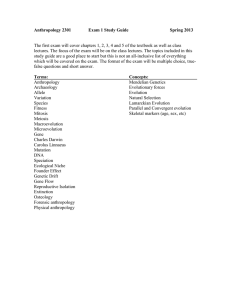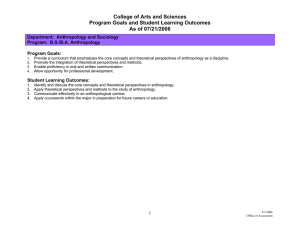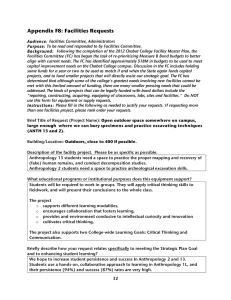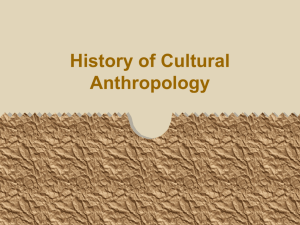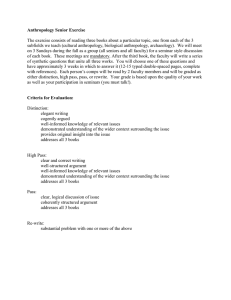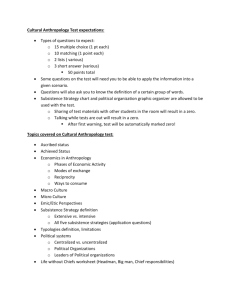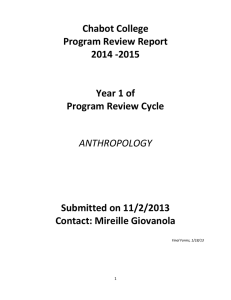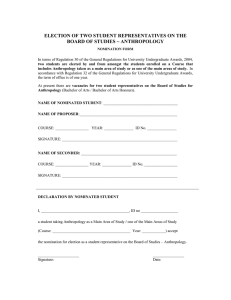Anthropology of Health
advertisement
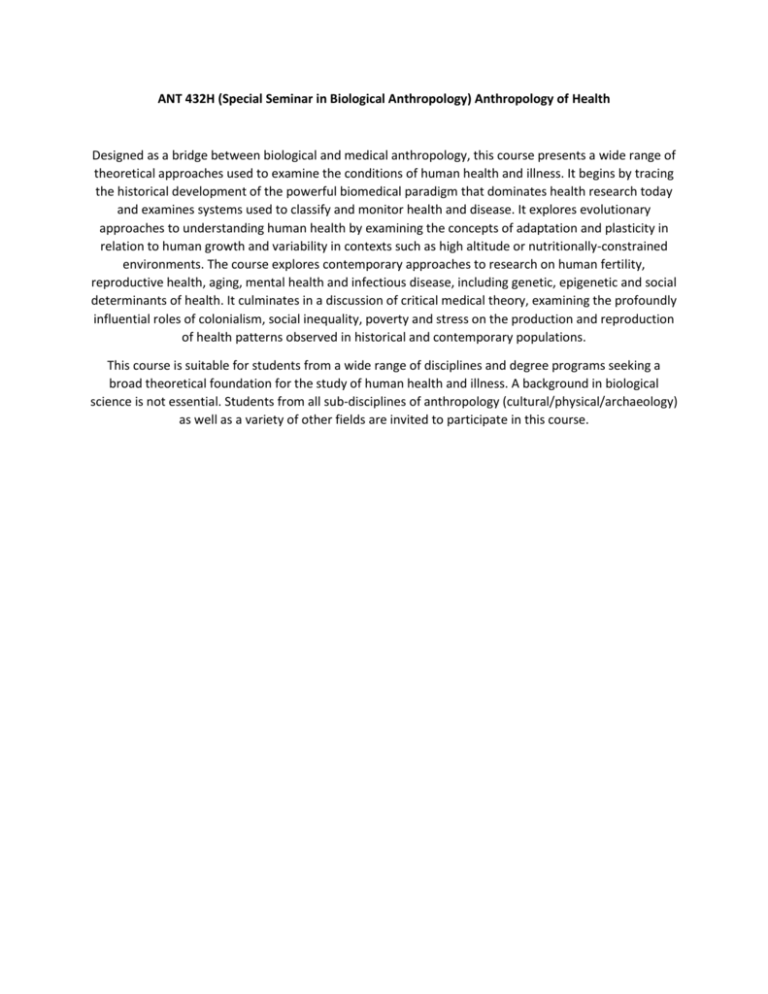
ANT 432H (Special Seminar in Biological Anthropology) Anthropology of Health Designed as a bridge between biological and medical anthropology, this course presents a wide range of theoretical approaches used to examine the conditions of human health and illness. It begins by tracing the historical development of the powerful biomedical paradigm that dominates health research today and examines systems used to classify and monitor health and disease. It explores evolutionary approaches to understanding human health by examining the concepts of adaptation and plasticity in relation to human growth and variability in contexts such as high altitude or nutritionally-constrained environments. The course explores contemporary approaches to research on human fertility, reproductive health, aging, mental health and infectious disease, including genetic, epigenetic and social determinants of health. It culminates in a discussion of critical medical theory, examining the profoundly influential roles of colonialism, social inequality, poverty and stress on the production and reproduction of health patterns observed in historical and contemporary populations. This course is suitable for students from a wide range of disciplines and degree programs seeking a broad theoretical foundation for the study of human health and illness. A background in biological science is not essential. Students from all sub-disciplines of anthropology (cultural/physical/archaeology) as well as a variety of other fields are invited to participate in this course.

